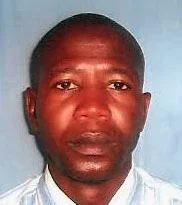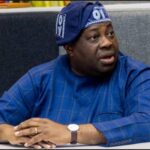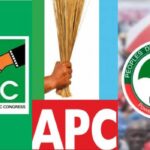Afolabi Gambari
Contents
That the National Council of State met at Aso Villa, Abuja, on October 9 to ratify the plethora of pardons rolled out by President Bola Tinubu isn’t much of a big deal. After all, it is trite that the council is a sort of rubber-stamp, dignified with the power to approve the decisions taken by a sitting president. There are precedents in this regard – and it didn’t matter whether such decisions were motivated by far-sighted or shortsighted intentions. For the most part, the council, at such instances, was only to be accorded with some powers or, better still, to make the members, especially those who had hitherto occupied lofty positions in the country, remain relevant in the polity. If anything was going to change as the council met on October 9, 2025, it could only be because this is a Renewed Hope Agenda era. Otherwise, it would still be business as usual.Let’s just call this “The era of pardon”. However, the list of the pardons smacked of the compilers’ ingenuity at chronicling the affairs of state. In another way, it could also suggest absent-mindedness that tilts towards national embarrassment, only assuaged, probably, by the fact that not many are wont to ask the state questions these days and demand answers. Therefore, the state, in this understanding, carries on as it pleases.Take one of the founding fathers of Nigeria, Herbert Macaulay, who is by far the most prominent in the list. Whoever dug up history to discover that Macaulay had been convicted by the colonial authorities in 1913 should be commended for a job well done. However, due diligence should have also revealed that the colonial laws under which Macaulay was convicted were subject to scrutiny at the time Nigeria became independent in 1960 and therefore were no longer tenable, making the state pardon granted him in 2025, said to be “posthumous”, untenable as it is unnecessary, as it is also irrelevant. At any rate, Macaulay already had his face on the Nigerian one-naira note before the economic vicissitudes of recent years rendered the denomination valueless.Take also Major General Mamman Jiya Vatsa, sentenced to death over a treason charge in 1986, also making the posthumous pardon list. The military administration of General Ibrahim Babangida, which sentenced Vatsa and nine others to death, had insisted they were guilty and deserved no mercy, prior to their execution. Although a senior member of the junta, General Domkat Bali, stated a few years after that there were “no sufficient evidence” to show that Vatsa and others were guilty of the offence for which they paid the supreme price, General Babangida himself had in a long-overdue memoir released in February 2025 insisted that Vatsa and others were guilty, even though he regretted approving the convicts’ execution, considering Vatsa had been his boyhood friend. For more than three decades since the execution, family and friends of Vatsa had proclaimed his innocence, to which Babangida objected. Therefore, if Babangida insists that Vatsa was guilty of the treason charge, based, of course, on the evidence at his disposal, it amounts to creating a fuss for Tinubu to proclaim the pardon without first overruling Babangida with counter-evidence. The event chroniclers apparently did not reckon that the trial of environmental rights activist, Ken Saro Wiwa, and eight other Ogonis was a charade through and through and that, ab initio, the accused were not programmed to get justice, the court in Port Harcourt having carried out its task based strictly on express instructions from then maximum ruler, General Sani Abacha. They also failed to reckon that at a point, the lawyers representing Wiwa and others eased themselves of the case, knowing it was pre-determined not to favour the accused. Granting them posthumous pardon at this time is presidential, nonetheless. But ensuring that the Ogoni land is free from oil pollution and allied anti-human infractions, the cause for which Wiwa and others were extra-judicially killed, should be the right thing for the Tinubu administration to do in memory of the wrongly killed and a timeline for doing this needful should be set. The events leading to the brutal killing of four prominent Ogoni leaders – Chief Albert Badey, Chief Edward Kobani, Chief Samuel Orage and Theophilus Orage – in 1994, has ever been subject of controversy. One account said the killing resulted from what the youths of Ogoni perceived as collusion between the quartet and the combination of Abacha and Shell oil company while another account claimed Wiwa had ordered their killing upon perceiving them as a threat to his superior control over the youths. In light of the foregoing, it is difficult to understand the rationale of Tinubu awarding the quartet national honours.President Tinubu, according to his Senior Special Adviser on Media and Publicity, Mr. Bayo Onanuga, had acted on the recommendations of the Presidential Advisory Committee on the Prerogative of Mercy (PACPM) which has twelve members with the Attorney General and Justice Minister, Prince Lateef Fagbemi, as chairman, in addition to Chief Akinlolu Olujinmi, Prof. Alkasum Abba, Prof. (Mrs.) Nike Y. Sidikat Ijaiya, Justice Augustine B. Utsaha, and the Secretary, Dr. Onwusoro Maduka, a former permanent secretary. There are also the Permanent Secretary, Special Duties and Inter-Governmental Affairs, representatives of the Nigeria Police Force, Nigerian Correctional Service, National Human Rights Commission, Nigerian Supreme Council for Islamic Affairs (NSCIA), and Christian Association of Nigeria (CAN). On the whole, Onanuga said a total of 175 beneficiaries were recommended for the presidential clemency.It is hard to think that the committee did a thorough job in making the recommendations to Mr. President, even if it could be argued that they did their best. In the pardoned list are individuals that have been served appropriate sentences that would make them serve as deterrent to others whose stock in trade is to infringe on the law – with the ultimate aim of making Nigeria a better place – but are let off the hook for “having demonstrated sufficient remorse”.A whiff of political agenda could also be gleaned from the pardoning of a former House of Representatives member, Hon. Farouk Lawan, who was sentenced to five years in 2021 for corrupt practices, resulting from gross abuse of office and privileges. Prior to his being unearthed in 2012, the representative of Bagwai/Shanono constituency in Kano State had been renowned as “Mr. Integrity”, a status he failed to sustain when it mattered most as he fell into political obscurity soon after, even though he was at the time the most popular politician in Kano State, with many believing he could be the next governor after Rabiu Musa Kwankwaso. Lawan’s pardon has come in handy as the 2027 general election approaches, and there are indications he would speedily re-position himself, garnering his army of supporters, to help Tinubu secure the much sought-after massive Kano votes for the latter’s re-election. It remains to be seen what strategy Lawan intends to deploy in this task. But suffice it that his statement that he feels his hope renewed by the pardon suggests where his allegiance would be.
That the National Council of State met at Aso Villa, Abuja, on October 9 to ratify the plethora of pardons rolled out by President Bola Tinubu isn’t much of a big deal. After all, it is trite that the council is a sort of rubber-stamp, dignified with the power to approve the decisions taken by a sitting president. There are precedents in this regard – and it didn’t matter whether such decisions were motivated by far-sighted or shortsighted intentions. For the most part, the council, at such instances, was only to be accorded with some powers or, better still, to make the members, especially those who had hitherto occupied lofty positions in the country, remain relevant in the polity. If anything was going to change as the council met on October 9, 2025, it could only be because this is a Renewed Hope Agenda era. Otherwise, it would still be business as usual.
Let’s just call this “The era of pardon”. However, the list of the pardons smacked of the compilers’ ingenuity at chronicling the affairs of state. In another way, it could also suggest absent-mindedness that tilts towards national embarrassment, only assuaged, probably, by the fact that not many are wont to ask the state questions these days and demand answers. Therefore, the state, in this understanding, carries on as it pleases.
Take one of the founding fathers of Nigeria, Herbert Macaulay, who is by far the most prominent in the list. Whoever dug up history to discover that Macaulay had been convicted by the colonial authorities in 1913 should be commended for a job well done. However, due diligence should have also revealed that the colonial laws under which Macaulay was convicted were subject to scrutiny at the time Nigeria became independent in 1960 and therefore were no longer tenable, making the state pardon granted him in 2025, said to be “posthumous”, untenable as it is unnecessary, as it is also irrelevant. At any rate, Macaulay already had his face on the Nigerian one-naira note before the economic vicissitudes of recent years rendered the denomination valueless.
Take also Major General Mamman Jiya Vatsa, sentenced to death over a treason charge in 1986, also making the posthumous pardon list. The military administration of General Ibrahim Babangida, which sentenced Vatsa and nine others to death, had insisted they were guilty and deserved no mercy, prior to their execution. Although a senior member of the junta, General Domkat Bali, stated a few years after that there were “no sufficient evidence” to show that Vatsa and others were guilty of the offence for which they paid the supreme price, General Babangida himself had in a long-overdue memoir released in February 2025 insisted that Vatsa and others were guilty, even though he regretted approving the convicts’ execution, considering Vatsa had been his boyhood friend. For more than three decades since the execution, family and friends of Vatsa had proclaimed his innocence, to which Babangida objected. Therefore, if Babangida insists that Vatsa was guilty of the treason charge, based, of course, on the evidence at his disposal, it amounts to creating a fuss for Tinubu to proclaim the pardon without first overruling Babangida with counter-evidence.
The event chroniclers apparently did not reckon that the trial of environmental rights activist, Ken Saro Wiwa, and eight other Ogonis was a charade through and through and that, ab initio, the accused were not programmed to get justice, the court in Port Harcourt having carried out its task based strictly on express instructions from then maximum ruler, General Sani Abacha. They also failed to reckon that at a point, the lawyers representing Wiwa and others eased themselves of the case, knowing it was pre-determined not to favour the accused. Granting them posthumous pardon at this time is presidential, nonetheless. But ensuring that the Ogoni land is free from oil pollution and allied anti-human infractions, the cause for which Wiwa and others were extra-judicially killed, should be the right thing for the Tinubu administration to do in memory of the wrongly killed and a timeline for doing this needful should be set. The events leading to the brutal killing of four prominent Ogoni leaders – Chief Albert Badey, Chief Edward Kobani, Chief Samuel Orage and Theophilus Orage – in 1994, has ever been subject of controversy. One account said the killing resulted from what the youths of Ogoni perceived as collusion between the quartet and the combination of Abacha and Shell oil company while another account claimed Wiwa had ordered their killing upon perceiving them as a threat to his superior control over the youths. In light of the foregoing, it is difficult to understand the rationale of Tinubu awarding the quartet national honours.
President Tinubu, according to his Senior Special Adviser on Media and Publicity, Mr. Bayo Onanuga, had acted on the recommendations of the Presidential Advisory Committee on the Prerogative of Mercy (PACPM) which has twelve members with the Attorney General and Justice Minister, Prince Lateef Fagbemi, as chairman, in addition to Chief Akinlolu Olujinmi, Prof. Alkasum Abba, Prof. (Mrs.) Nike Y. Sidikat Ijaiya, Justice Augustine B. Utsaha, and the Secretary, Dr. Onwusoro Maduka, a former permanent secretary. There are also the Permanent Secretary, Special Duties and Inter-Governmental Affairs, representatives of the Nigeria Police Force, Nigerian Correctional Service, National Human Rights Commission, Nigerian Supreme Council for Islamic Affairs (NSCIA), and Christian Association of Nigeria (CAN). On the whole, Onanuga said a total of 175 beneficiaries were recommended for the presidential clemency.
It is hard to think that the committee did a thorough job in making the recommendations to Mr. President, even if it could be argued that they did their best. In the pardoned list are individuals that have been served appropriate sentences that would make them serve as deterrent to others whose stock in trade is to infringe on the law – with the ultimate aim of making Nigeria a better place – but are let off the hook for “having demonstrated sufficient remorse”.
A whiff of political agenda could also be gleaned from the pardoning of a former House of Representatives member, Hon. Farouk Lawan, who was sentenced to five years in 2021 for corrupt practices, resulting from gross abuse of office and privileges. Prior to his being unearthed in 2012, the representative of Bagwai/Shanono constituency in Kano State had been renowned as “Mr. Integrity”, a status he failed to sustain when it mattered most as he fell into political obscurity soon after, even though he was at the time the most popular politician in Kano State, with many believing he could be the next governor after Rabiu Musa Kwankwaso. Lawan’s pardon has come in handy as the 2027 general election approaches, and there are indications he would speedily re-position himself, garnering his army of supporters, to help Tinubu secure the much sought-after massive Kano votes for the latter’s re-election. It remains to be seen what strategy Lawan intends to deploy in this task. But suffice it that his statement that he feels his hope renewed by the pardon suggests where his allegiance would be.







